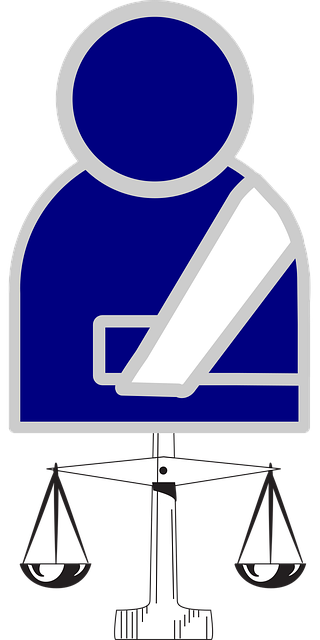Public corruption and antitrust enforcement trends in digital markets share a common thread: both demand vigilance against power abuse for fair play. The digital revolution has shifted traditional antitrust methods, with global authorities adapting strategies to scrutinize anti-competitive practices online, including agreements, market positions, and mergers. Notable cases like United States v. Pfizer (2014) highlight the interplay between business, politics, and philanthropy, underscoring the need for transparency and regulatory frameworks to maintain public trust in rapidly evolving digital sectors. Staying informed about these trends is crucial for successfully defending clients against allegations in this complex digital age.
“Uncovering the intricate web of public corruption charges is essential for businesses navigating modern markets. This article explores the complex landscape, offering a comprehensive guide to understanding these allegations and their legal implications. We delve into the definitions and evolving legal frameworks surrounding public corruption, with a specific focus on antitrust enforcement in digital markets—a space presenting unique challenges and emerging trends.
Through insightful case studies, we examine notable public corruption cases and their far-reaching effects on business practices, shedding light on best practices for ethical conduct.”
- Understanding Public Corruption Charges: Definitions and Legal Frameworks
- Antitrust Enforcement in Digital Markets: Unique Challenges and Trends
- Case Studies: Notable Public Corruption Cases and Their Implications on Business Practices
Understanding Public Corruption Charges: Definitions and Legal Frameworks
Public Corruption Charges encompass a wide range of illicit activities where public officials or those with significant influence abuse their power for personal gain, often at the expense of the public good. These charges are defined by laws and regulations that vary across jurisdictions but generally involve scenarios such as bribery, embezzlement, fraud, and misuse of public funds. Understanding these charges requires delving into the intricate legal frameworks designed to uphold integrity in governance.
In many countries, antitrust enforcement trends in digital markets have mirrored the fight against public corruption. Both domains require vigilance to ensure fair play and prevent those with power from abusing it. White-collar defense strategies, crucial for avoiding indictment, often focus on demonstrating ethical conduct, transparency, and strict adherence to legal guidelines. Achieving extraordinary results in these cases involves meticulous documentation, robust compliance programs, and proactive measures to deter potential corrupt practices.
Antitrust Enforcement in Digital Markets: Unique Challenges and Trends
The evolving digital landscape presents unique challenges for antitrust enforcement in markets that were once largely offline. As businesses expand into online spaces, traditional strategies for identifying anti-competitive practices must adapt to new forms of market concentration and conduct. Antitrust authorities worldwide are navigating these complexities, focusing on digital markets’ distinct features, such as data-driven business models and network effects.
Enforcing antitrust laws in this realm requires a nuanced approach, considering the impact of algorithms, data sharing, and platform dynamics on competition. Recent trends indicate a growing emphasis on investigating anti-competitive agreements, abuse of dominant market positions, and the effects of mergers and acquisitions in digital spaces. Achieving extraordinary results, including winning challenging defense verdicts, relies on staying abreast of these evolving enforcement trends and understanding the unique circumstances faced by corporate and individual clients in the digital age.
Case Studies: Notable Public Corruption Cases and Their Implications on Business Practices
Notable public corruption cases have served as a mirror reflecting the intricate relationship between business practices and ethical governance. These cases, ranging from high-profile political scandals to complex antitrust violations in digital markets, offer valuable insights into the implications of corrupt conduct on economic landscapes. For instance, the case of United States v. Pfizer (2014) highlighted not only the company’s role in paying bribes to healthcare providers but also the far-reaching consequences for antitrust enforcement trends in digital markets. By exposing systematic abuse of power, these cases prompt a re-examination of corporate responsibility and the need for robust regulatory frameworks.
Furthermore, scrutinizing such incidents reveals the interconnectedness between philanthropy, politics, and business. While philanthropic efforts within the political community are essential, as seen in several complete dismissals of all charges due to lack of evidence or procedural errors, they must remain transparent and free from influencing regulatory decisions. Ensuring integrity throughout all stages of the investigative and enforcement process is crucial to maintaining public trust and fostering a culture of ethical business conduct. This includes addressing not only overt corruption but also subtle forms that can undermine fair competition, particularly in rapidly evolving digital sectors.
Public corruption charges, as explored through definitional frameworks and notable case studies, underscore the intricate relationship between business practices and legal scrutiny. In the digital age, antitrust enforcement trends in these markets present unique challenges that demand adaptive strategies. Understanding these dynamics is crucial for fostering ethical conduct and mitigating risks for businesses operating within regulated landscapes. By navigating the complexities of public corruption cases and adopting transparent, compliant approaches, companies can contribute to a more robust and fair market environment.






